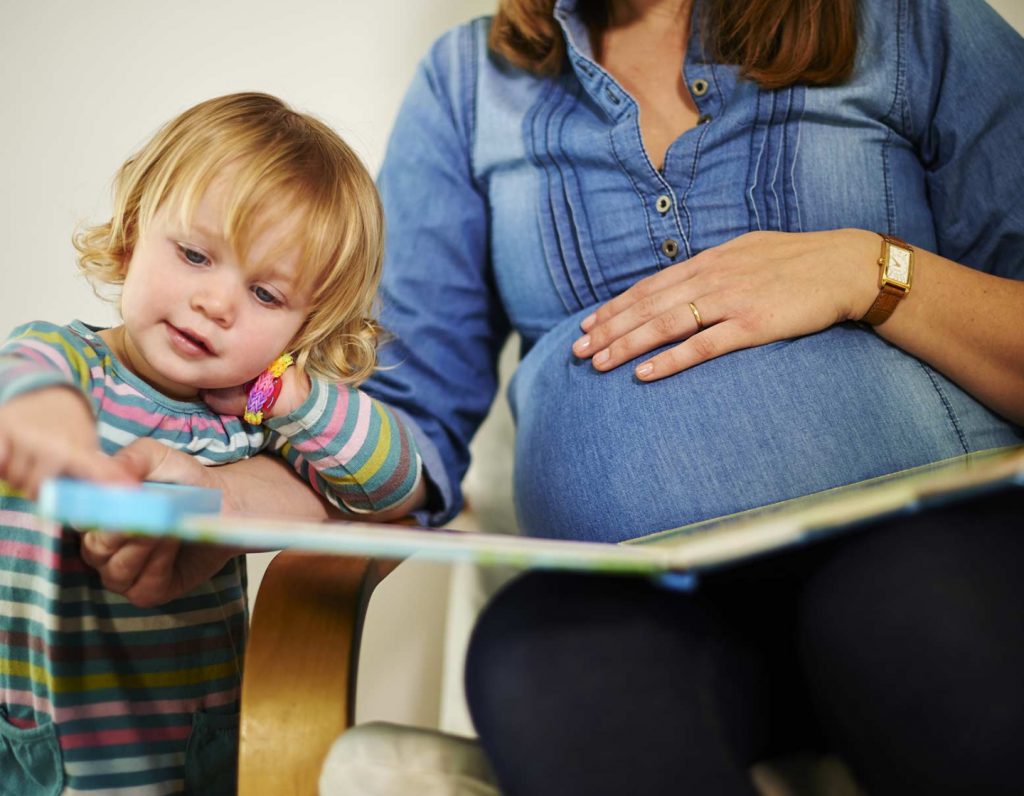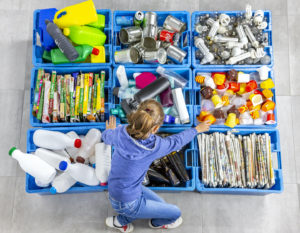
 Post Category - ParentingParenting - Post Category - BabyBaby - Post Category - Toddler & PreschoolerToddler & Preschooler
Post Category - ParentingParenting - Post Category - BabyBaby - Post Category - Toddler & PreschoolerToddler & PreschoolerParenting advice to help your firstborn cope with a new sibling in the family
When I first found out I was expecting our second child, I thought about my first-born. I wondered what our new life might look like. I wondered how he might take the news and whether he would grow up having richer experiences because of the new addition to our family. I hoped he would find a lifelong buddy in his new sibling, someone who’d always have his back, and be his friend forever. I worried if I was up to the task of nurturing two lives, each unique and individual in their own ways, while also sharing similar family values.
Read more: Top 10 New Baby Sibling Books to Read to Toddlers
It’s been three months since we’ve welcomed Luke into our home and 3.5-year-old Liam has quickly assumed the role of big brother. I count my blessings that it’s been a manageable transition for us all. We’ve just begun this whole family-of-four thing so we definitely have a long way to go and a lot more to learn but if you have a little one on the way, here are some parenting tips that might just make the transition for your first-born (and you) that much easier.
Before the baby arrives:
- Accept their feelings towards the news of their new sibling, even if it’s negative.
When we first broke the news to Liam about his baby sibling, he wasn’t thrilled at all. In fact, most times when we mentioned the baby, his response would be a resounding “NO!”. Remaining objective and accepting of their negative feelings is important as it allows for them to also process it and not feel pressured to feel otherwise. It helps to remain calm even if we’re met with resistance so our child continues to feel safe expressing their emotions, and we will be in a better position to help them understand and cope. - Use books, songs and stories to help your child process the news.
Learning through stories and song has always been one of the most effective ways to teach younger children. Some of our favourites books include There’s a house inside my mummy, My New Baby and All at Sea: There’s a New Baby in the Family, which has beautiful illustrations and presents a very gentle way of including baby into a new home. Click here for our top 10 favorite new sibling books for toddlers! - Be mindful of the baby-related talk
It’s easy to get carried away with the baby talk – everyone’s excited! But it can quickly become overkill for your child, especially if they’re not fully on board yet. Take cues from your child on how often to bring up the baby and how much they’re engaging in the topic. A good sign that your child is warming up to the idea is if they respond positively when you suggest that the baby could, in future, join him in one of his favourite activities.

After the baby arrives:
- Stress can surface in many ways for your first-born.
Children are very sensitive to changes in their environment, and while your first-born may be taking on his new role like a champ, the stress from the change in routine can still get to him. You may notice tantrums getting larger, or regression in certain things like suddenly not wanting to feed themselves. It’s worth considering what this could mean beyond the actual action itself. For example, a sudden rise in dependence could be a signal that your child wants to spend more time with you. - Involve your first-born in the care for his new sibling.
As a Montessori educator, I see the wonders of a mixed-age classroom. As children work towards their own development of self, helping others and engaging in purposeful work is an important part of that equation. Involving your older child in the care of his younger sibling is a beautiful way for your older child to begin building a sense of responsibility, understanding of the baby and emotional literacy. Questions such as “why do you think your brother is crying?”, “what can we do to help your brother feel better?” are good ways to help your older child build empathy and consideration of others. - Establish clear limits to help your first-born navigate these new waters.
Being clear on the new rules and boundaries of the home is important to help your first-born navigate these new waters. The world she knew before is going through a big change and not having clear limits can trigger a fight or flight response where a lot of limit pushing and testing will take place. The clearer and firmer you are with the new rules of the home, the faster she will be able to adapt and make sense of her new environment again. This is especially useful when it comes to setting rules around playing near baby and definite off-limit behaviour when we’re around baby.
When the long nights return and the days seem to last forever – especially juggling between a first-born and your new baby – just remember that everyone needs space to adjust, including you.
In this interesting time of Covid-19, having visitors and extra help can be difficult – there are plenty of services that can help make things a little easier. I’ve been giving myself a weekly one-hour yoga class just to find some time to breathe in between the crazy of it all. Good luck mama – I’m here for you if you need. Emails are welcome at [email protected].






 View All
View All




 View All
View All









 View All
View All









